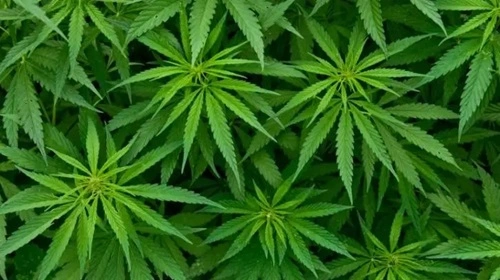Yes, bhang is legal in India, but its legality is subject to certain regulations. Bhang, made from the leaves of the cannabis plant, is not classified as a narcotic under Indian law, unlike other cannabis derivatives such as ganja (flowering tops) and charas (resin). However, its production, sale, and consumption are regulated by state governments.
Legal Framework Governing Bhang in India

The legality of bhang in India is primarily governed by the Narcotic Drugs and Psychotropic Substances (NDPS) Act, 1985 and state-level regulations.
1. Narcotic Drugs and Psychotropic Substances (NDPS) Act, 1985
- Exclusion of Bhang:
- Bhang is made from the leaves of the cannabis plant, which are explicitly excluded from the definition of “cannabis” under the NDPS Act.
- The Act defines “cannabis” to include:
- Charas: The resin of the cannabis plant.
- Ganja: The flowering tops of the cannabis plant.
- Since bhang is derived from the leaves, its production and use are not governed by the stringent provisions of the NDPS Act.
- Regulation at the State Level:
- The NDPS Act allows state governments to regulate the cultivation, production, and sale of cannabis leaves (used to make bhang). This means the legal status of bhang varies from state to state.
2. State-Level Regulations
- Permitted in Certain States:
- States like Uttar Pradesh, Rajasthan, Madhya Pradesh, and Uttarakhand allow the sale and consumption of bhang. In these states, bhang is often consumed during festivals like Holi as a cultural and religious tradition.
- Regulated Sale:
- Licensed vendors are permitted to sell bhang in states where it is legal. Unlicensed production or sale may attract penalties.
- Prohibited in Some States:
- Some states restrict or ban the sale and consumption of bhang, often treating it similarly to other cannabis products.
3. Cultural and Religious Significance
- Association with Hindu Traditions:
- Bhang has been used in India for centuries, often associated with Hindu rituals and festivals.
- It is traditionally consumed during Holi and Mahashivratri, with offerings made to Lord Shiva, who is believed to have an affinity for bhang.
- Ayurvedic Use:
- Bhang has been historically used in Ayurveda for its medicinal properties, including pain relief and appetite stimulation.
4. Legal Penalties for Violations
- Unlicensed Sale or Production:
- Producing or selling bhang without proper authorization in states where licensing is required may lead to fines or imprisonment under state excise laws.
- Consumption in Prohibited States:
- Consuming bhang in states where it is banned can attract penalties under local laws.
Challenges and Concerns
- Misuse and Abuse:
- Although bhang is legal, its misuse can lead to health and social issues, including addiction and impaired judgment.
- Regulatory Ambiguity:
- The legal status of bhang varies across states, leading to confusion about its legality in certain regions.
- Lack of Awareness:
- Many consumers are unaware of the licensing requirements and the penalties for unregulated sale or production.
Recent Developments
- Decriminalization Discussions:
- There have been debates about decriminalizing cannabis derivatives, including bhang, for medical and industrial use.
- Increased Regulation:
- Some states have tightened regulations around the sale and consumption of bhang to prevent misuse.
- Ayurvedic Applications:
- Research into the medicinal benefits of cannabis leaves, including those used for bhang, has gained momentum, leading to increased interest in its regulated use.
Conclusion
Bhang is legal in India under specific regulations, primarily at the state level. While it enjoys cultural and religious significance, its production and sale are controlled to prevent misuse. Consumers should be aware of the local laws governing bhang in their state to ensure compliance and avoid legal penalties. As discussions on cannabis reform progress, the regulatory landscape for bhang and its derivatives may evolve further.
Hina Abbasi is Editor and a passionate sports and entertainment content writer at WinnersMaze.com. Hina’s expertise spans across a wide range of sports, and interest in many TV shows allowing her to deliver insightful analysis and compelling stories that resonate with readers.

